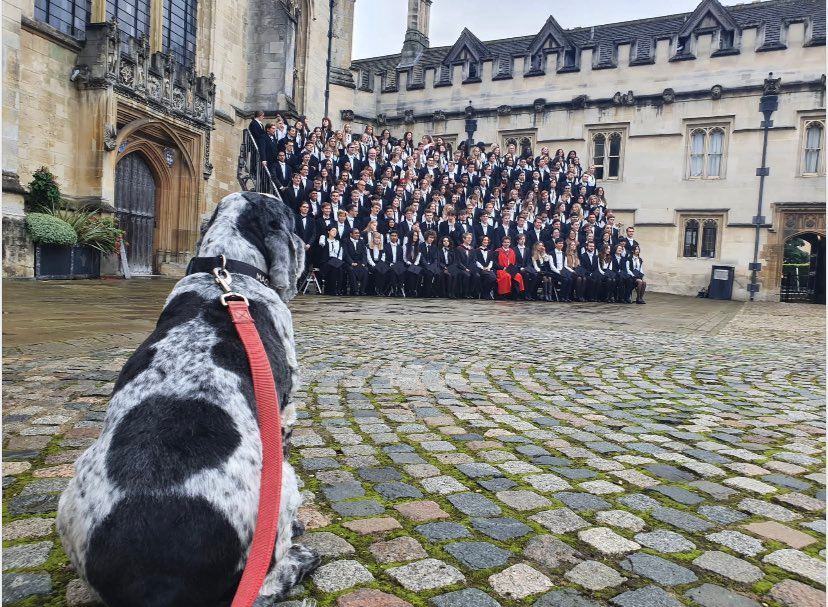The role of the LGBTQ+ community in politics is a complex one. UK gay rights have advanced rapidly in the space of thirty years since the WHO declassified homosexuality as a mental illness: the age of consent has been equalised, adoption rights were won, Section 28 was repealed, and in the last ten years marriage equality has been delivered to all four nations of the United Kingdom. However, stigma still exists, and LGBTQ+ rights and particularly transgender rights have now been weaponised for political benefit. We cannot forget that this is still a country that up until this year had a Prime Minister that wrote about gay men being ‘tanked top bum boys’ and has never apologised. We still have a highly revered Archbishop of Canterbury who maintains gay sex is a sin. And one in five LGBT people have experienced a hate crime or incident because of their identity in the last 12 months.
The newly appointed Conservative Cabinet at Number 10 has been heralded for its ethnic diversity and stark contrast to that of Cameron’s only 6 years ago. However, this hides a rather unsettling trend in the top-jobs of politics. The PinkNews article scrutinising cabinet members LGBTQ+ stances is titled in exasperation ‘The good, the bad and the terrifying’. In a parliament that has the most LGBTQ+ MPs in history, we have receded to having no representation in Cabinet. Even in 1997, when the repressive Section 28 was still enforced, the first openly out Cabinet Minister assumed office.1 In a political party where only 2% of current MPs were sitting in parliament during the Thatcher years, it seems her legacy remains strong. Comparisons between Truss and Thatcher on any level are deeply unsettling for the LGBTQ+ community. This, I believe, is a problem worth investigating. This article has compiled voting records, MP testimony, and political commentary to try to understand the current situation in Conservative Politics.
Let’s start by analysing Liz Truss and her closes allies; their subsequent appointment to Ministry is the source of shock that spurred me into writing this article:
- Truss herself has voted in favour of same-sex marriage consistently but her stint as Equalities Ministers was marred by resignations in the LGBT Advisory Panel in protest at ‘hostile’ treatment of the community.
- Kwasi Kwarteng, the new Chancellor, voted against the legalisation of same-sex marriage twice in 2013 and has been absent for all votes on the subject since.
- Thérèse Coffey, new Deputy Prime Minister and Health Secretary, voted against marriage equality in England and Wales 2013 and in Northern Ireland in 2019. Coffey was then part of a group of 15 MPs who urged the House of Lords to block same-sex marriage after the House of Commons voted in its favour in 2013. Citing her religious values for her stance, she affirmed her view had not changed in multiple television appearances over the past three years. She has opposed mandatory sex and relationship education in schools which coming from the minister at the helm of the NHS during the Monkeypox outbreak is concerning. She has been quiet about her views on Trans Rights, but can be assured to change given the influential voice she now holds.
- The new Home Secretary Suella Braveman just led her unsuccessful leadership campaign on the backbone of her “war on woke” rhetoric. She follows her new bosses steadfast support of the Rwanda Policy even as LGBTQ+ rights group express horror at the thought of vulnerable refugees being sent to a country where gay and transgender indivuduals are rountinetly rounded up and detained by the government there.
- Defence Secretary Ben Wallace ‘has voted against every piece of LGBT+ legislation put in front of him, including the Equality Act and same-sex marriage’. He also voted in favour of the Human Fertilisation and Embryology Bill, which according to PinkNews will make it harder for lesbian couples to concieve through IVF.
- Trade Secretary Kemi Badenoch is the former equalities minister who was accused of ‘utterly failing’ LGBTQ+ individuals in the role. he was a key facilitator of meetings between government representatives and conversion therapy advocates. In her bid for party leadership she positioned herself as ‘anti-woke’ and secured an endorsement from far-right group Britain first. She made headlines for adding gendered signage to gender neutral toilets at her campaign event.
- Active anti-gay marriage MP Jacob Rees Mogg has been promoted to Business Secretary despite always voting against legalising same-sex marriage.
- Simon Clarke, new Secretary of State for Levelling Up, Housing and Communities, voted against legalising gay marriage in Northern Ireland.
The Conservative Party’s divisive 1987 general election campaign poster.
It is commonly understood that David Cameron’s Conservative government led the way for the legalisation of gay marriage. But this is not true. While only 41% of Tory MPs voted for legislation, it was Labour’s unwavering 88% support that got the bill passed. Tory MPs made up 82% of all votes against. Interestingly all 8 Northern Ireland DUP MPs voted against the Bill despite it only affecting England and Wales; the SNP abstained for this reason. Theresa May’s decision to enter into de-facto Coalition with this deeply homophobic party is emblematic of the continued Tory association with anti-LGBTQ+ organisations.
Looking to the 2019 vote to legalise same-sex marriage in Northern Ireland, while MPs overwhelmingly voted in favour (383-73), it was the Conservatives who were responsible for 89% of those votes against – including several Ministers. No Labour or Liberal Democrat MPs voted against. Notable abstentions include Jeremy Hunt, Boris Johnson, Theresa May (then PM), Ester McVey, Philip Hammond (then Chancellor), Sajid Javid (then Home Secretary). Many Conservatives have voted for some legislation, including Dominic Raab, but continue with efforts to protect churches who were opposed to conducting ceremonies.
All this may be surprising for a political party that has the most LGBTQ+ MPs at 26 compared with Labour’s 22. Many of these MPs have struggled with their identity and are public about the challenges they have faced. Conservative Shrewsbury MP Daniel Kawczynski came out to his constituency already an MP. He told the Shropshire Star in 2019 “I was scared to tell, even to my closest supporters in the local Conservative Association – so much so that I was quietly praying the train would break down so I would not have to impart it”. I approached Daniel for a comment but was declined. Conservative MP David Mundell came out as gay in 2016 while Scotland Secretary after dealing with “conflicting emotions … doubts and fears” He was demoted under Theresa May and has not served in cabinet since. He conceded that he would only ever be happy with himself if he was himself in his public life as well as private. Ruth Davison, former Scottish Conservative Leader, has also spoken of the difficulties of being publicly gay while not seeking to talk about it. Conservative MP Dehenna Davison is the first female openly bisexual MP. She spoke to PinkNews about not wanting to make her ‘coming out’ a big deal.
There are currently 66 openly-LGBT MPs according to LGBT+ in Parliament website. While MPs face difficulty navigating their identity within politics, the proportion of MPs, especially within the Conservative Party suggest that improvements have been made. There is a dedicated LGBT+ Conservative Group who supporting and further the rights of their LGBT+ members. There is no question the Conservative Party has a complex and challenging relationship with LGBT rights, and understadning their current situation of simultaneously having the most LGBTQ+ MPs while also a cabinet that has consistently voted against furthering those MPs rights, was a task only an insider perspective could help understand. I reached out to openly-LGBT MPs of all parties and received no responses from Labour or the SNP. This is a statement in itself and regardless of politics, I would like to personally thank Conservative MP Crispin Blunt for giving this article exclusive insight.
Reigate MP Crispin Blunt left his wife and revealed he was gay in 2010. He was deselected by his local Conservative Association’s Executive Council soon after in 2013 – many pointing to his sexuality as the reason. In the controversy that followed several members went record to say they would not support a gay candidate. However, he was reinstated and his parliamentary career continued. Being no stranger to the complex relationship his party has with LGBTQ+ rights, Blunt was keen to speak to me about my concern regarding the new cabinet.
“There will be a natural anxiety for people looking at their [new cabinet members] voting records and their views,” Blunt began. “But as the person who called on Liz Truss to resign as Equalities Secretary after the screw up she made with the Gender Recognition Act, while you might think that I would be partially in your corner, as ever things are a little bit more complicated than they might appear”.
Blunt is a proud advocate of LGBT+ rights and was the founder and chair of the APPG for Global LGBT+ Rights following his ministerial duties. He seems proud of the advancements society has made regarding this issue: “Over many decades from the period of the 1950s from where you had a police force enthusiastically entrapping gay men in the UK and over a thousand people in prison for consensual sex, the change in attitude over that period has been profound.”
Crispin does not deny his party’s complicated past on the issue. “The step back for the Conservative party in the 1980s on Section 28 is a terrible stain on the party’s record. But it does need to be understood in the context of the time…It became clear to me that in the early 1980s the LGBT cause had been appropriated by a revolutionary left. It had lined up with Peter Tatchell, the miners, and other causes that were seen as a threat to the state itself – the people who wanted to change society radically.” Crispin believes it was Stonewall’s attempts to ‘make amends’ with the establishment that produced a ‘constructive engagement.’ “That first meeting with John Major following Thatcher’s departure produced the unanswerable position that equality was required – first on the age of consent.” While Major’s move in 1995 to equalise the age of consent ‘narrowly lost at the time’ Crispin is insistent that this demonstrates his party ‘quickly starting to move on this issue’ even if ‘Tory backwings in the House of Lords’ delayed the equalisation to 16 that PM Blair introduced a decade later. In the House of Commons, a very large number of Conservatives were now supporting reform, with some very powerful voices like Bernard Jenkin. They had to wake up to the reality of modern society.” He points out that the Labour Blair government did not change the policy to allow gay people to serve openly in the armed forces, having to be imposed in 2002 by the European Court of Human Rights.
“It has always been a reality that a pretty decent minority, if not a majority of parliamentary researchers and those fluttering about in the Westminster space were gay. There were far more gay conservatives than there were in the other parties.” Blunt continues. “You had people like [openly gay] Guy Black (now Lord) who was a senior member of the Conservative Research department writing speeches for Thatcher on Section 28. Now it obviously looks absurd.”
Blunt understands the Civil Partnership Act gave ‘legal equality’ to same sex couples “So for many Conservatives – misguided in my view – it was about ownership of the word marriage. Was it owned by the Church or the State? And I think for you and me the answer is blindingly obvious in that we should have progressed to equal marriage in the first place.” While David Cameron’s parliamentary party voted against him “it was only half and those voting against knew they were going to lose so they could make a risk free statement for those people for whom who this was important”. Blunt believes that “in this area some people are always going to put their faith first” however it now safe to be a Conservative candidate and be gay.
“By 2018 with Theresa May as PM we had the most progressive LGBT equality action plan in the world”. Blunt is noticeably frustrated with his party entering into “a totally avoidable mess over not understanding the Trans issue properly”.
Blunt’s prioritisation of Trans rights in parliament stems from his own experiences as a member of the LGBTQ+ society. “I had to think this through from scratch in summer 2020. “I’m a minority sexuality. What the fuck is it like to be in the wrong gender?” Blunt is critical of culture wars around Trans rights. “Once you convince people that transgenderism and gender dysphoria are a real thing then you can address the consequences of gender dysphoria.” Blunt claims this can be done through improving the currently ‘woeful’ medical services that treat and help adults and children ‘in a proper and academic and medical way’. When asked about Tory Ministers meeting with anti-Trans groups, Blunt says: “Kiera Bell is the 1% of those people who regret medical transition. But what about the other 99% and transition surgery has the lowest regret rate of any surgery?” He is clear the greatest threat to women does not come from Trans women and that “the current artificially stoked row” is a reflection of a system that doesn’t have adequate resources.
Blunt shared his own coming out experience with me. After telling his wife, he was advised by Cameron’s Press Secretary Andy Coulson to write a public statement and share it to the relevant platforms. “While all the Saturday newspapers put it somewhere near the front page; most of the commentary at that point is ‘why do we need to know this, what is this to do with us?’. That was the first time there had been a reaction in that way. It was only the Daily Mail who managed to find two more days of news out of it. The Daily Mail decided I had done it to save my career.2
“This can be contrasted to my colleague Greg Barker, who came out to his wife in 2008 but didn’t tell anybody else. He was seen in a gay club with his boyfriend and the Daily Mirror and the Daily Mail then did him for a week. The change in those two years was quite marked”. Blunt says making a public statement got him to where he wanted to be with no effects that he can ‘properly identify’ on his political career – “its path is entirely mine”. While he was ‘ambushed’ in the reselection process, Blunt received a ‘definitive answer’ when 86% of all local members voted to reselect him. “I feel rather sorry for the people who took a rather public position around my reselection because they simply didn’t know how to express themselves”.
“Nik Herbert was the first gay conservative ever to be selected for a seat he could win as a candidate – and that was in 2005. Alan Duncan was the first Conservative ever to come out as a serving MP and that was in 2001. By 2010 as many gay conservative candidates were being selected for winnable seats as anyone else. By 2015/17 there are more gay conservatives than other parties by a decent distance, which reflects the nature of the Conservative family in Westminster. For the Conservatives to have the first trans MP is another marked social change. Jamie has an important role in achieving rights for trans people in the UK and convincing some of my colleagues they do actually exist.”
Asking about the Rwanda Policy, Blunt’s view surprises me. “I think if someone’s claiming asylum because of being LGBT it would be rather odd if we started shoving those people on a plane to Rwanda. Hopefully this situation will force a conversation on Rwanda’s own policy into space. This is part of the rather unhappy picture where the commonwealth [British Empire] produced most places where it illegal for people to be gay. Many countries never changed the laws imposed by the Victorians on African societies that criminalised homosexuality, and which didn’t consider the complexities of African society: the last king of Uganda was bisexual, and so for Uganda to be the poster child for the worst anti-LGBT practises is a devastating misunderstanding of history and their own society. LGBT rights have been seen as a Western imposition, when it’s actually quite the reverse.” I completely agree with this and offer the following research paper for further reading.
Blunt concludes by hoping he has communicated this journey. Sir Peter Tapsell, former father of the house, having been Anthony Eden’s private secretary in the 1950s “says that this was the biggest social change in his time in politics”. “We [the Conservative Party] always would be laggers on social reform, the party of the establishment are inevitably going to be led by the progressive parties on these kinds of issues because they will be institutionally more attached to church and state than the Labour party and its more radical members. It was actually the association of the LGBT equality issue with the radical change in British society that then frightened the Conservatives institutionally from actually standing for equality. Stonewall were the ones that actually worked out that the Conservatives were no different from anyone else on this issue, and if approached properly would be perfectly capable of doing it. Your generation of 20-year-olds are miles ahead in understanding than people who are 30, Christ help us 60 year olds.” Blunt is right to identify the Conservatives as the party of the establishment, but to the objection of the leadership in his party who are adamant that it isn’t. Is Tory resistance to BLM and Trans Rights a repetition of what Blunt reasons? As the party looks ahead to try to win the next election, the electoral map is beyond recognition. Those who identify as right wing do so now more become of their social values, as opposed to their economic ones. And this sets a scene for an election fought on battlegrounds of culture, not economy.
There is no question that the the Conservative Party has made headway in some forms of diversity. While they govern under their third female prime minister, Labour has yet to appoint a female leader. And the new cabinet is historic diversity top jobs of government. Yet there is a clear misunderstanding of why diversity is championed. What is longed for in many communities is for individuals who yes represent them, but also act in their best interest and actively take tactile measures and policies that help these communities. While I cannot speak for ethnic minorities, if a gay man was Prime Minister but did nothing to tackle the homophobic hate crimes that harm our community nor ban conversion therapy then there really isn’t much difference from a straight one. Hollow representation has been used to pedal ideology that would be seen as unacceptable proposed by an individual of a different group. While everyone is entitled to their own opinion, it does not make everyone right nor worthy of office. For a party whose leadership has consistently played into populist rhetoric,‘fought’ supposed ‘culture wars’ and undermined the most vulnerable groups in society for political capital it is easy to see why the situation for LGBTQ+ people is more uncertain.
While the politicians in the Conservative Party have varying opinions on the LGBTQ+ community, it is not validation that we need. We know that there will always be homophobes in society, and always people that want to put us down. What matters is that we rise above it as a community. We have many legal protections in the law. What we need are changes in societal attitudes. We may wish to have politicians that represent and fight for us in the national arena, and I do believe that with time this will come. Times are always changing and the path to progress will be travelled even if we have been forced around a long winding Tory diversion. I wish for a time when sexuality or gender identity are not career defining features in politics, and when there will be no need to champion these figures, as they have already been embraced by a free and fair society.
1.Section 28 was introduced in 1987 by Thatcher’s Conservatives and prohibited the “promotion of homosexuality” by local authorities and forced many LGBT organisations like support groups to limit their activities or self-censor. Thatcher also vetoed HIV awareness broadcasts during the AIDs pandemic at the cost of many lives.
2.After his speech as Prison’s Minister caused critical headlines No. 10 censured Blunt and indicated his removal.
Image credit: Jack Twyman







